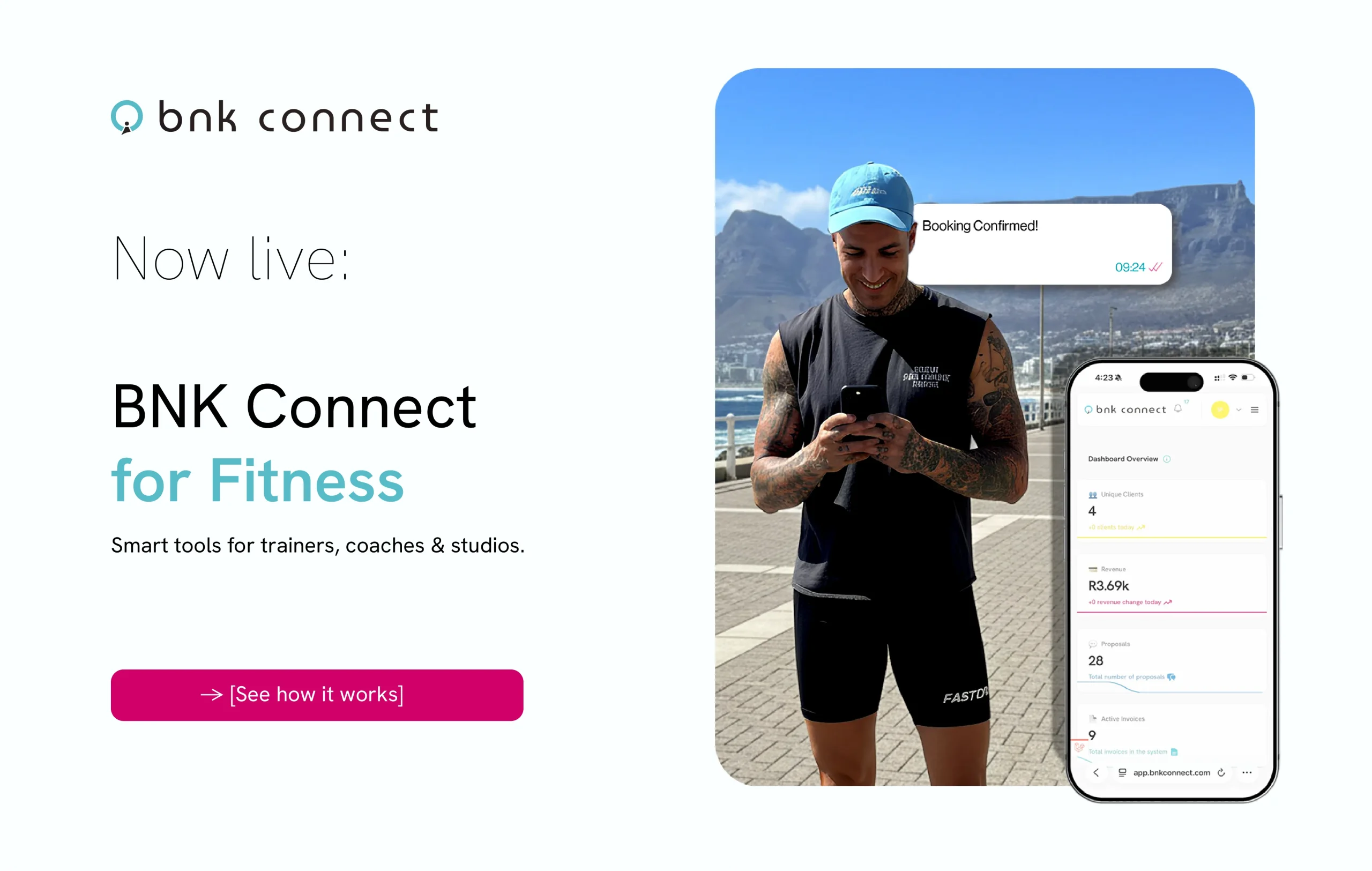

For years, personal trainers have often been seen as something reserved for athletes or those chasing extreme fitness goals. The image is familiar: elite athletes in the gym, working with a coach to shave seconds off their time or push their strength to the next level.
But today, the role of a personal trainer has expanded far beyond professional sport. Trainers now work with people of all fitness levels, from complete beginners to busy professionals looking to stay healthy while balancing demanding schedules.
BNK Connect was built to support these trainers in showcasing their expertise and reaching the clients who need them most. It gives personal trainers a central platform to manage bookings, track client progress, and build relationships with people who aren’t just chasing medals, but everyday strength, health, and confidence.
The Old Perception: Trainers for the Elite
It’s easy to see where the stereotype came from. Historically, many trainers marketed themselves as specialists in athletic performance. Sports clubs and professional teams were their main employers, and their services were positioned as a luxury.
This created an assumption that if you weren’t aiming for a marathon, a triathlon, or a competition, you didn’t need a trainer. Fitness culture itself played a role too, often portraying training as something extreme rather than approachable.
But as lifestyles changed, so did the expectations of clients. More people began to see fitness as part of everyday wellbeing, and with that shift came a new wave of trainers offering programmes that focused on health, longevity, and balance instead of just peak performance.

The Modern Client: From Beginners to Busy Professionals
Today’s clients are more diverse than ever. Many are not chasing personal bests in sport – they’re looking for practical, realistic support to help them live healthier lives. Personal trainers are now guiding:
- Complete beginners who want to build confidence in the gym without feeling intimidated.
- Busy professionals who need efficient, flexible workouts that fit around demanding schedules.
- Parents looking to rebuild fitness postnatally or balance childcare with self-care.
- Older adults aiming to improve mobility, strength, or energy in day-to-day life.
Instead of focusing on high-level performance metrics, trainers are helping clients achieve goals that feel personal and relevant – like having more energy to get through the day, reducing stress, or building strength to carry shopping without pain.
Why Personalised Training Matters
One of the biggest reasons trainers are so valuable to non-athletes is personalisation. Generic online workouts can help for a while, but they don’t take into account a client’s history, limitations, or specific goals. A personal trainer offers:
- Tailored programmes built around individual fitness levels and schedules.
- Guidance on safe technique, reducing the risk of injury – especially important for beginners.
- Accountability that helps clients stick with their routine.
- Adaptability, adjusting programmes when work, health, or family commitments get in the way.
For busy professionals in particular, the efficiency of personalised training is key. Instead of wasting time figuring out what to do at the gym, they get straight to a structured plan that makes the most of every session.
Breaking Down Intimidation Barriers
Walking into a gym for the first time can be intimidating. For many people, this is the biggest barrier to even starting. Trainers play an essential role in breaking down these walls. By explaining equipment, demonstrating form, and creating a welcoming environment, they help beginners feel comfortable and capable.
The shift from “trainer as drill sergeant” to “trainer as partner” has also been important. Today’s trainers are often mentors as much as coaches, supporting clients with encouragement and celebrating small wins. That makes training feel less like punishment and more like progress.

How Trainers Fit Around Busy Lives
For professionals balancing long hours, meetings, and family commitments, fitness often falls to the bottom of the list. Trainers provide structure and efficiency that help clients prioritise their health without overwhelming their schedules.
- Flexible scheduling: Many trainers now offer early-morning, lunchtime, or evening sessions to fit around workdays.
- Hybrid coaching: Combining in-person and virtual training gives clients more options. A professional might meet their trainer once a week in the gym, then follow an online plan the rest of the time.
- Short, effective sessions: Not every workout has to be an hour long. Trainers are increasingly offering 30-minute or even “micro sessions” for those with tight schedules.
This flexibility makes training far more accessible to people who might once have written it off as “not for me.”
The Ripple Effect Beyond Fitness
Personalised training doesn’t just impact physical fitness – it influences many aspects of daily life. Clients often report better sleep, reduced stress, and improved mental health. For busy professionals, this can mean a sharper focus at work. For beginners, it can mean newfound confidence that carries over into social or family life.
These ripple effects are why personal trainers are no longer confined to the world of sport. They are becoming key partners in overall well-being.
How BNK Connect Supports Trainers and Clients
This shift in who personal trainers serve is also changing how they run their businesses. Trainers need tools to connect with a broader range of clients, manage their schedules efficiently, and provide a professional experience that builds trust.
BNK Connect was designed to make this easier. For trainers, it offers:
- A marketplace where clients can discover them by speciality, from beginners’ fitness to strength training for professionals.
- Integrated scheduling and messaging to streamline communication and avoid double-bookings.
- Easy invoicing and payments, cutting out the stress of chasing money.
- Tools to track client progress, making it simple to personalise plans and demonstrate results.
For clients, it creates a straightforward way to find the right trainer for their needs – not just those chasing elite-level performance, but those wanting sustainable, everyday fitness.





